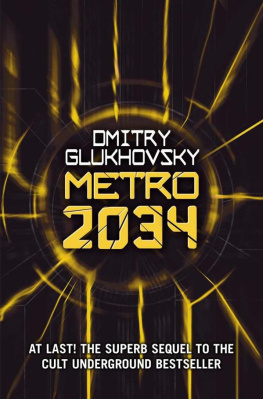Dmitry Zinoviev - Resourceful Code Reuse
Here you can read online Dmitry Zinoviev - Resourceful Code Reuse full text of the book (entire story) in english for free. Download pdf and epub, get meaning, cover and reviews about this ebook. year: 2021, publisher: Pragmatic Bookshelf, genre: Computer. Description of the work, (preface) as well as reviews are available. Best literature library LitArk.com created for fans of good reading and offers a wide selection of genres:
Romance novel
Science fiction
Adventure
Detective
Science
History
Home and family
Prose
Art
Politics
Computer
Non-fiction
Religion
Business
Children
Humor
Choose a favorite category and find really read worthwhile books. Enjoy immersion in the world of imagination, feel the emotions of the characters or learn something new for yourself, make an fascinating discovery.
- Book:Resourceful Code Reuse
- Author:
- Publisher:Pragmatic Bookshelf
- Genre:
- Year:2021
- Rating:3 / 5
- Favourites:Add to favourites
- Your mark:
- 60
- 1
- 2
- 3
- 4
- 5
Resourceful Code Reuse: summary, description and annotation
We offer to read an annotation, description, summary or preface (depends on what the author of the book "Resourceful Code Reuse" wrote himself). If you haven't found the necessary information about the book — write in the comments, we will try to find it.
Resourceful Code Reuse — read online for free the complete book (whole text) full work
Below is the text of the book, divided by pages. System saving the place of the last page read, allows you to conveniently read the book "Resourceful Code Reuse" online for free, without having to search again every time where you left off. Put a bookmark, and you can go to the page where you finished reading at any time.
Font size:
Interval:
Bookmark:

Copyright 2021 The Pragmatic Programmers, LLC. This book is licensed to the individual who purchased it. We don't copy-protect it because that would limit your ability to use it for your own purposes. Please don't break this trustyou can use this across all of your devices but please do not share this copy with other members of your team, with friends, or via file sharing services. Thanks.
Many of the designations used by manufacturers and sellers to distinguish their products are claimed as trademarks. Where those designations appear in this book, and The Pragmatic Programmers, LLC was aware of a trademark claim, the designations have been printed in initial capital letters or in all capitals. The Pragmatic Starter Kit, The Pragmatic Programmer, Pragmatic Programming, Pragmatic Bookshelf and the linking g device are trademarks of The Pragmatic Programmers, LLC.
Every precaution was taken in the preparation of this book. However, the publisher assumes no responsibility for errors or omissions, or for damages that may result from the use of information (including program listings) contained herein.
The Pragmatic Bookshelf is an agile publishing company. Were here because we want to improve the lives of developers. We do this by creating timely, practical titles, written by programmers for programmers.
Our Pragmatic courses, workshops, and other products can help you and your team create better software and have more fun. For more information, as well as the latest Pragmatic titles, please visit us at http://pragprog.com.
Our ebooks do not contain any Digital Restrictions Management, and have always been DRM-free. We pioneered the beta book concept, where you can purchase and read a book while its still being written, and provide feedback to the author to help make a better book for everyone. Free resources for all purchasers include source code downloads (if applicable), errata and discussion forums, all available on the book's home page at pragprog.com. Were here to make your life easier.
Want to keep up on our latest titles and announcements, and occasional special offers? Just create an account on pragprog.com (an email address and a password is all it takes) and select the checkbox to receive newsletters. You can also follow us on twitter as @pragprog.
If you buy directly from pragprog.com, you get ebooks in all available formats for one price. You can synch your ebooks amongst all your devices (including iPhone/iPad, Android, laptops, etc.) via Dropbox. You get free updates for the life of the edition. And, of course, you can always come back and re-download your books when needed. Ebooks bought from the Amazon Kindle store are subject to Amazon's polices. Limitations in Amazon's file format may cause ebooks to display differently on different devices. For more information, please see our FAQ at pragprog.com/#about-ebooks. To learn more about this book and access the free resources, go to https://pragprog.com/book/dzreuse, the book's homepage.
Thanks for your continued support,
Andy Hunt
The Pragmatic Programmers
The team that produced this book includes: Dave Rankin (CEO) Janet Furlow (COO) Tammy Coron (Managing Editor) Adaobi Obi Tulton (Development Editor) Corina Lebegioara (Copy Editor) Andy Hunt and Dave Thomas (Founders)
For customer support, please contact .
For international rights, please contact .
Resourceful Code Reuse offers readers a quick way to understand how code is compiled and linked using the C language within the modern context of consuming and processing JSON.
| Mike Riley |
| President, Ingenious Solutions, Inc. |
Every developer should know about the concepts described in this book. Even if you dont use C and Python in your daily work, you will learn something about software development and how to reuse code.
| Dominik Hauser |
| Author of Build Location-Based Projects for iOS |
Everyone can code, but writing beautiful code requires code reuse skills. Whether you are starting coding or you have broad experience, this book offers a practical guide that allows you to optimize your code by applying code reuse techniques.
| Jose Arturo Mora Soto |
| Senior Curriculum Engineer, 2U Inc. |
Acknowledgments
This is my second book edited by Adaobi Obi Tulton and, just like the first book, it would not be possible without her enthusiasm, dedication, and highest professionalism. Thank you, Adaobi.
I am grateful to my reviewers (in alphabetical order): Ludovico Fischer, Dominik Houser, Andy Lester, Mike Riley, Jose Arturo Mora Soto, and Ilya Usvyatsky. Their criticism was refreshening and energizing. Their reviews greatly improved the structure, usability, and style of the book. Thank you, reviewers.
My wife, Anna; my children, Eugenia and Roman; my colleagues from Suffolk University (especially Pelin Bicen) and my friends (especially Dmitry and Tanya Cherevik) provided much-needed emotional support. Thank you, my supporters.
Last but not least, I am grateful to Desbenoit .
Preface
I took my first and only academic course in software engineering in the fall of 1994. The course was taught by Professor Peter Henderson, who had spent a quarter of a century at Stony Brook University and retired shortly after my graduation. The course was taught in Smalltalk, the mother of all object-oriented languages, and was undeniably excellent. Sadly, I have never had another chance to write a line of code in Smalltalk and barely remember what it looked like.
What I do remember is the mantra that Professor Henderson recited over and over again, until it got imprinted into my mind, from the top of my head to my fingertips: Thou shalt use make files and reuse your code. Ever since, Ive started every new non-trivial project by writing a makefile and spending a ridiculous amount of time dissecting the job into potentially reusable units. In this book, I want to share with you my passion for code reuse and code organization and the skills that support that passion.
This book is mainly intended for beginner through intermediate software developers in C and, to a much lesser extent, in Python, who want to achieve higher productivity, better code quality, and more flexible and adaptable products by reusing and organizing previously written code. Experience with command-line software development tools is helpful but not required.
After the mandatory introduction that sets the scene for the story, the book goes over three stages of small project development: editing (producing the projects text in a programming language), compiling (converting the text into object files with machine code), and linking (combining the pre-compiled object files into one executable program file). Any unit produced at any stage can be reused and shared at a later stage, including the runtime when there is no more development. The rest of the book is organized into three chapters focused on these topics: compile-time reuse, link-time reuse, and runtime reuse.
Font size:
Interval:
Bookmark:
Similar books «Resourceful Code Reuse»
Look at similar books to Resourceful Code Reuse. We have selected literature similar in name and meaning in the hope of providing readers with more options to find new, interesting, not yet read works.
Discussion, reviews of the book Resourceful Code Reuse and just readers' own opinions. Leave your comments, write what you think about the work, its meaning or the main characters. Specify what exactly you liked and what you didn't like, and why you think so.

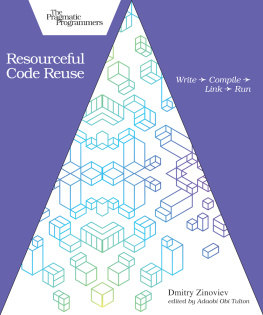
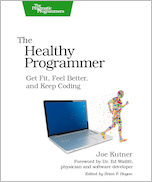
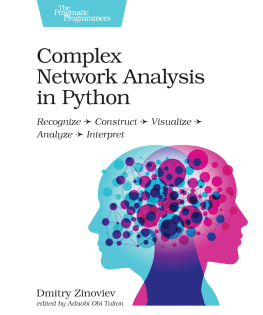
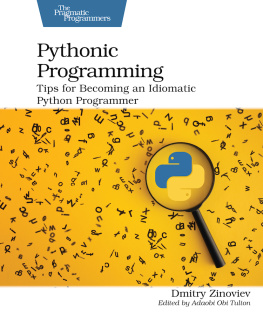




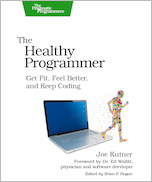

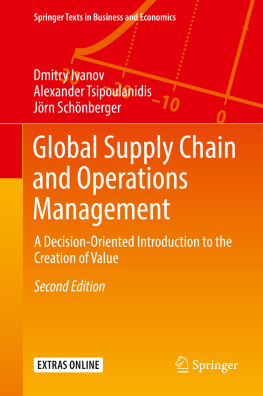
![Dmitry Zinoviev [Dmitry Zinoviev] - Data Science Essentials in Python](/uploads/posts/book/119602/thumbs/dmitry-zinoviev-dmitry-zinoviev-data-science.jpg)
